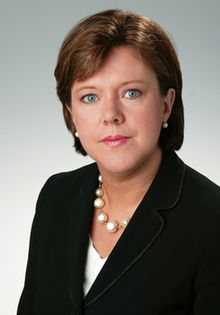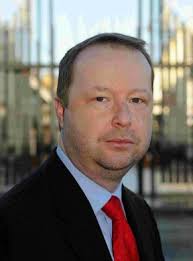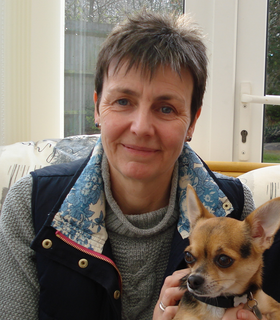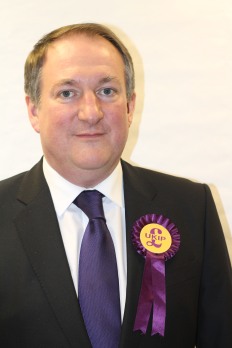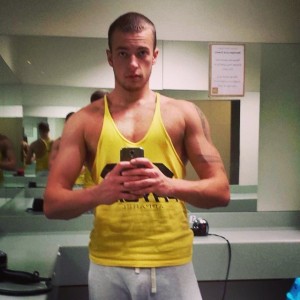This year, as my final stint working for WINOL during my final year, I felt I learned about the more serious side of journalism as I took on the role of Presenter during the GE 2015 show. I also contributed towards content such as a constituency profile on Basingstoke and news stories about the politics in Basingstoke. I think that the quality of packages, presenting, production, the content and the team effort and output as a whole for this special WINOL GE 2015 show led to an outstanding piece of journalism: something everyone involved should be proud of.
After months of preparation, the team could not have been more prepared. WINOL had a large team of reporters, presenters, stand-in ‘presenters friends’, directors, producers and a huge amount of people working on production. It has to be said though that those who did the best job on the night were those who had done the research; who were prepared for anything and knew their facts and politics inside out. I felt that I was as well prepared as I could have been. I am usually not a politically minded person and to be honest, before this election special, did not have a clue about politics. Looking back, I am thankful that I chose to participate in the election special because it is not only fantastic in terms of experience, but actually forced me to teach myself about the political spectrum and ongoings in the UK.
For the election special, my role on WINOL was to be one of four presenters on the night. I presented a two hour slot from 10pm-12am. I wanted to present because I knew it would push my boundaries and also because it is something I aspire to do in my future career. I feel confident in my skills as a reporter, and so instead of playing it safe I wanted to be a little uncomfortable so that I would work harder. I also spent the other six hours manning the cameras, and running around helping out anyone who needed it, fixing talkback, getting batteries for mic’s etc.
I felt my voice was definitely a strong point. I spent the months leading up to the election watching news readers every day at home (and have done anyway since a young age) and so I find it easy to copy the way they sound. I also felt I had good diction and projected my voice well. I could feel myself growing in confidence as the night went on. I think the more I learn on this course the more I know I want to be on screen and talking as I think my strong points lie in this area of journalism. I actually surprisingly also felt that my chats with Henry were really strong. Considering a couple of months ago I would of blanked and not had a clue what to ask him for 10 minutes, I held on with loads of really good questions and bounced them off of what he said. I also felt that after a nervous beginning, I eventually loosened up into the role and became more relaxed in front of the camera.
I felt that my camera skills were good (as I also worked on the camera’s for most of the night). I thought I listened to the best of my ability and worked hard to stay focused even during the really late hours when we were flagging.
One downfall when it came to my presenting was that I sometimes thought so hard about presenting and concentrating on the auto-cue I didn’t automatically pick up when there was an error in the auto-cue. Similar to the scene in the film Anchorman, where the presenter just reads what is written without thinking, I did make a mistake in saying Steve Bryant rather than Steve Brine as it was written Bryant on the auto-cue however I realised prior to it and corrected it and carried on.
I felt really proud of my constituency profile which I did on Basingstoke. I also wrote six articles throughout April and May about the politics in Basingstoke. I decided against doing video reporting as I felt I had plenty of practice in video reporting over the last two years and felt it would be more beneficial to work on my news writing skills and using the task as a chance to do so. I am submitting three of my best articles for my final year project alongside the constituency profile, this critical reflection and my showreel.
Overall in terms of the show as a whole, I felt that one of the main successes was probably for once, our organisation and planning as a team. With only a medium-small team of reporters and only a few main people manning the whole of production, I felt we did a really good job of creating a WINOL special on the general election. We had many live Skype calls, numerous in-studio discussions, packages from reporters regarding how it the news and updates will affect each local constituency and also live interjections from our different reporters who were assigned a party to specialise in. I think we all worked really hard to pull together as a team, and considering that this was a huge full-scale operation, which even for the BBC would take months of preparation, I felt we did an outstanding job, and I am proud to have been a part of it.
According to my notes from each week we put into planning, we chopped and changed ideas about how the show would work a lot, but I feel that this shows our flexibility and creativity as a team to revisit our ideas constantly and criticising our own plans and structure which we previously might of decided on.
A huge and probably obvious progression since last year is that as a whole, we have all really refined our camera and technical skills as much as we can given the equipment, which means that the material we are producing looks much more professional. We are thinking more about how we can turn our stories into a visually interesting story which is important because it means we have better pictures. And we are learning the huge importance of social media and using new different types of technology such as iPhones, which we learned after the second years produced a whole WINOL bulletin filmed and edited on iPhones. This also meant we felt brave enough to rely on our iPhones for the OB’s Skype, which by something short of a miracle (and a few dongles) luckily worked perfectly all night.
We also had the chance this term to learn about how to be fearless when interviewing people, especially politicians. Those who worked as OB units or as reporters and especially the presenters, had to learn how to be sweet enough to keep a guest or Henry (our ‘presenters friend’) happy to talk, but strict enough with themselves to cut them off if necessary while remaining calm. We also had to know which questions we had to ask with care and when we could really go for it. Henry was an absolute triumph on the night and I really do think we wouldn’t have been able to keep the show running as smoothly as it did without him. I think without a doubt he was our man of the match.
Another positive to take from the WINOL GE 2015 special was our use of contacts. Most reporters kept in regular contact with those they had interviewed in the past, which was useful as it meant we could find guests and people to interview with ease, rather than struggling. People who were out in the field at the four main swing seats were able to use their contacts with the candidates to get us exclusive interviews throughout the night.
In my opinion, the only weak point was the last minute rush at 9:30pm which led to us not having time to check and test the autocue, which led to the auto-cue not working for the first ten minutes, and also meant that the camera in Tab 9, where Rhodri was going to be reading news, was not working at that point. However, by the end of the first quadrant the team had worked together to fix these problems live on air and the show went on. So therefore that also ties in with planning. The only way this can be improved is by students looking to the future, being a little more organised and thinking logically about things.
Production has been a whole new learning curve for the WINOL team this year as we have had the introduction of Studio 2. Studio 2 is much more high tech and produces, in my opinion, a much more beautiful and high quality finish to our bulletins and shows which we record there. It is a shame however that on the night we had to use Studio 1, because although the studio is better looking and larger, the gallery has much older technology and is harder to work as it can be unpredictable. Although the studio was absolute mayhem on the day, we did expect this and we knew that although we had a structure when we first went live, that within minutes, the structure would no doubt be broken and we would have to depend on a source or talkback letting us in on any changes. So for reporters or OB units outside the studio or university, this meant receiving a phone call. For presenters, this meant being told clearly in our ear piece by the directors and for everyone else in studio or in production, this meant listening very carefully to everything going on around them and staying focused.
In terms of statistics and audience figures, in comparison to other student journalism sites over the general election period, the WINOL livestream had more than 700 viewers throughout the night. This is our biggest audience ever.
We also had a post reach of just under 1,000 for the WINOL website and social media, which could be down to our live feed where we tried to constantly update the website alongside everything else (our social media, uploading videos etc). This is an increase of 37,776% on last week. It was vital to keep on top of our social media in the running up to and during the election night as this leads to more views which leads to our course and talents being given the chance to shine. So overall we have done really well in terms of getting our website rolling. The social media team did a great job of attracting attention.
I think overall that WINOL and the students have all performed to the best of our ability and we really pulled together and stayed professional throughout the whole show. But in terms of improvements to be made there are a few things that stand out to me. We could have done with another ‘presenter’s friends’ as poor Henry had to stay in studio for 8 hours and it was so hot and very tiring. We also could have prepared the scripts better as by the end all of the presenters had written all of their own in a bit of rush as we realised how much needed doing.
One of the things I picked up on as a great success was our sudden attention to any breaking news and we would have our presenters cut off to any reporter with the news and update our stories constantly. This is especially important during the election as the audience wants recent news, rather than footage we filmed or pre-recorded earlier. We should check constantly for updates on our stories with contacts or online. Reporters also need to keep on tweeting as they have been doing this term as it has made a huge difference. We also were hugely successful in staying balanced and keeping an eye on the legal side of things. We can’t report on everything the parties talk about (representation of people act), however I felt we covered every base extremely well and fairly. We overcame every single barrier that came our way. Throughout the night pretty much everything broke at one point, but we all kept on going and fixed things while the show continued, and that I think is our main success. We functioned like a real working newsroom and news company. I think we should be so proud of how far we have come, and we could consider ourselves the ones to beat in the student journalism world.
——————————————-
Lucy Florence Wilson
My critical reflection to be submitted as part of my FYP alongside my profile constituency package on Basingstoke, three reports (and one extra) and my showreel.
